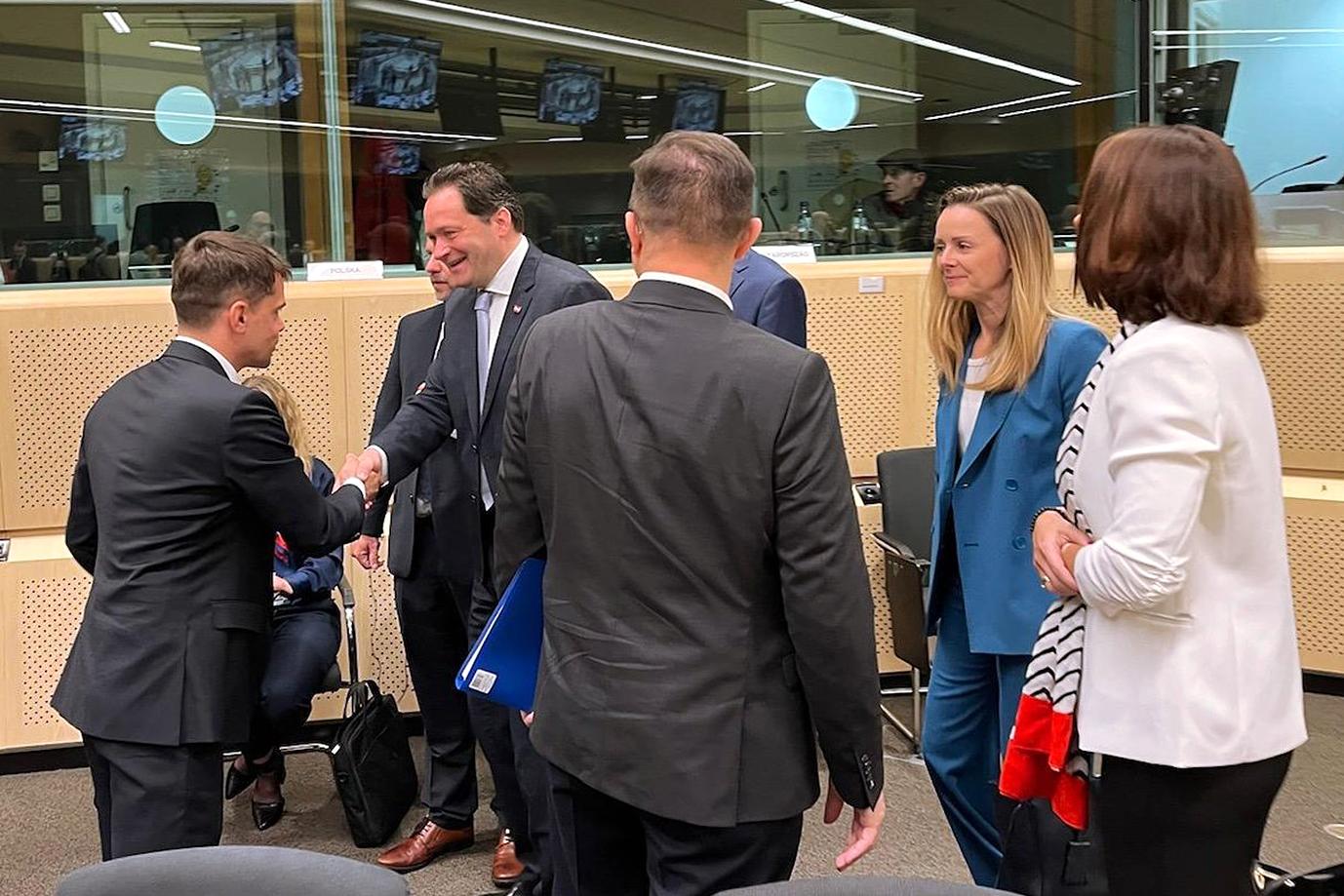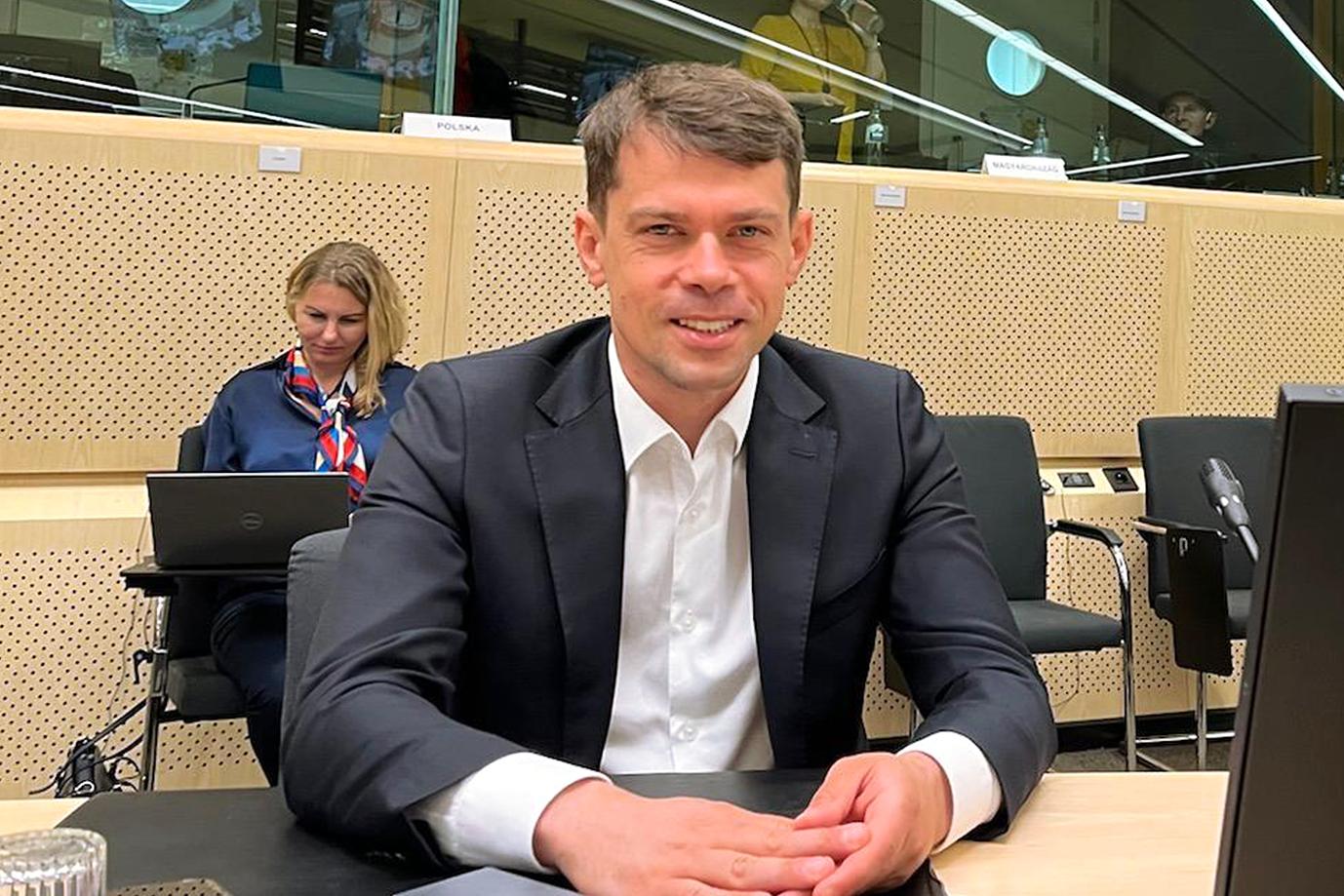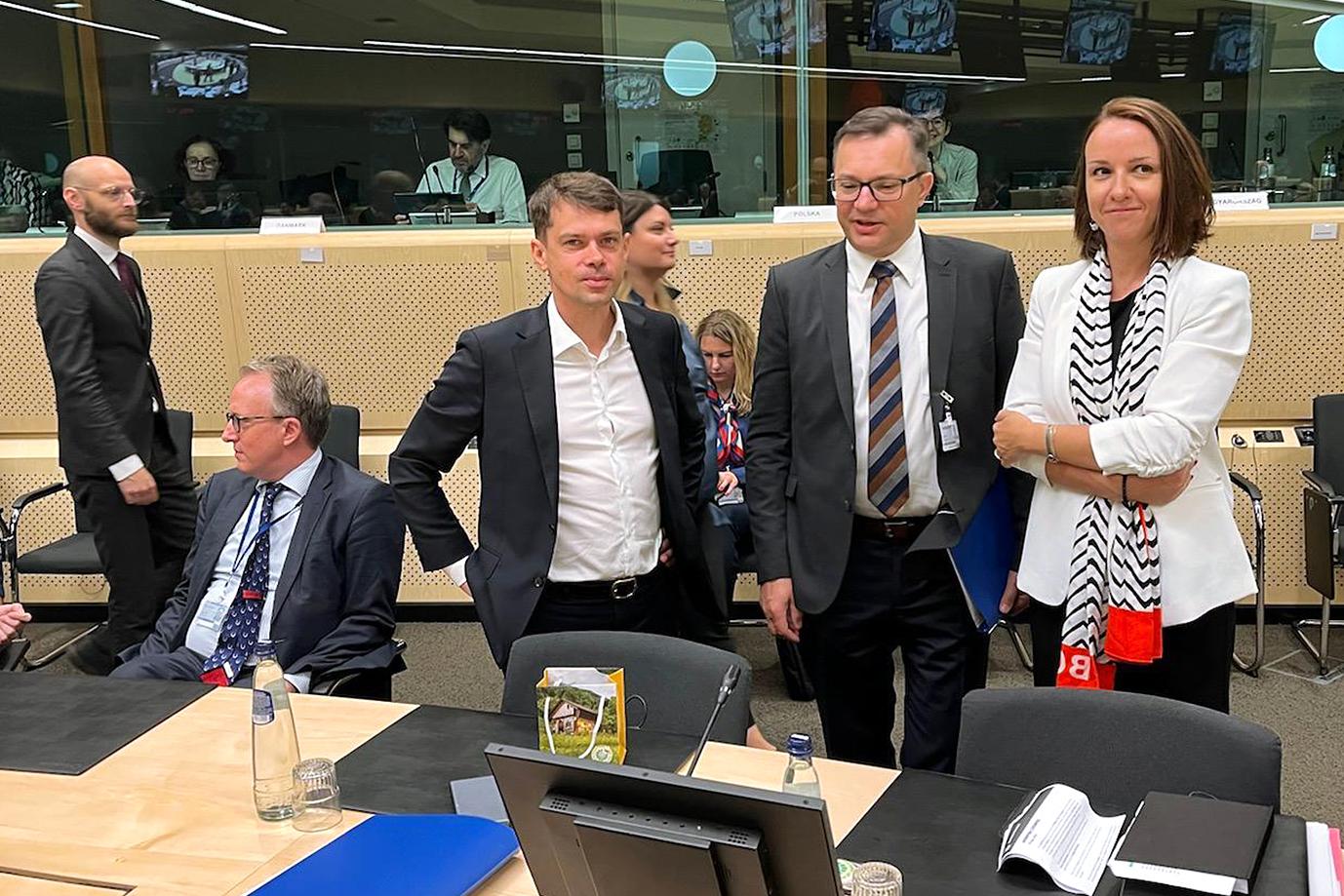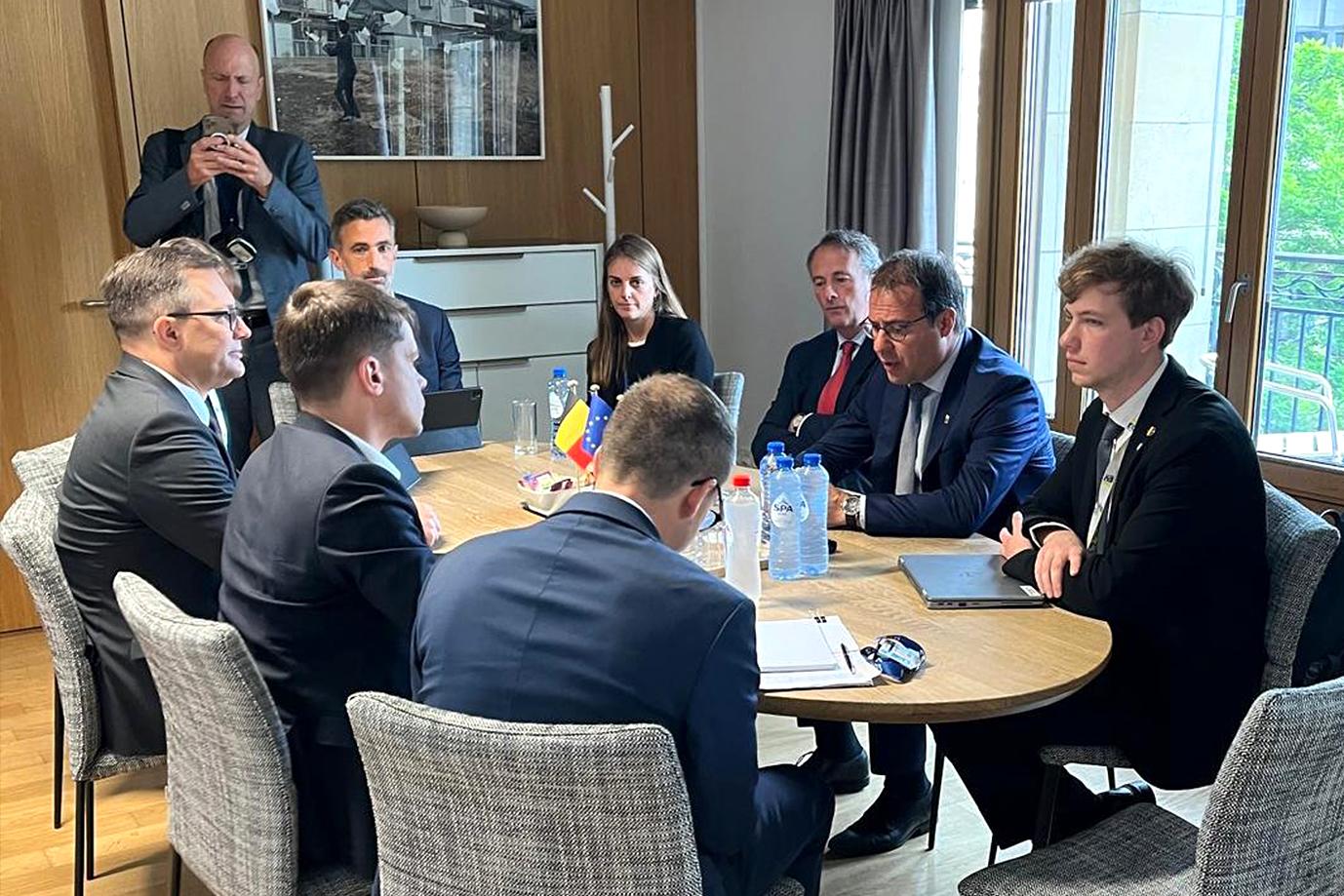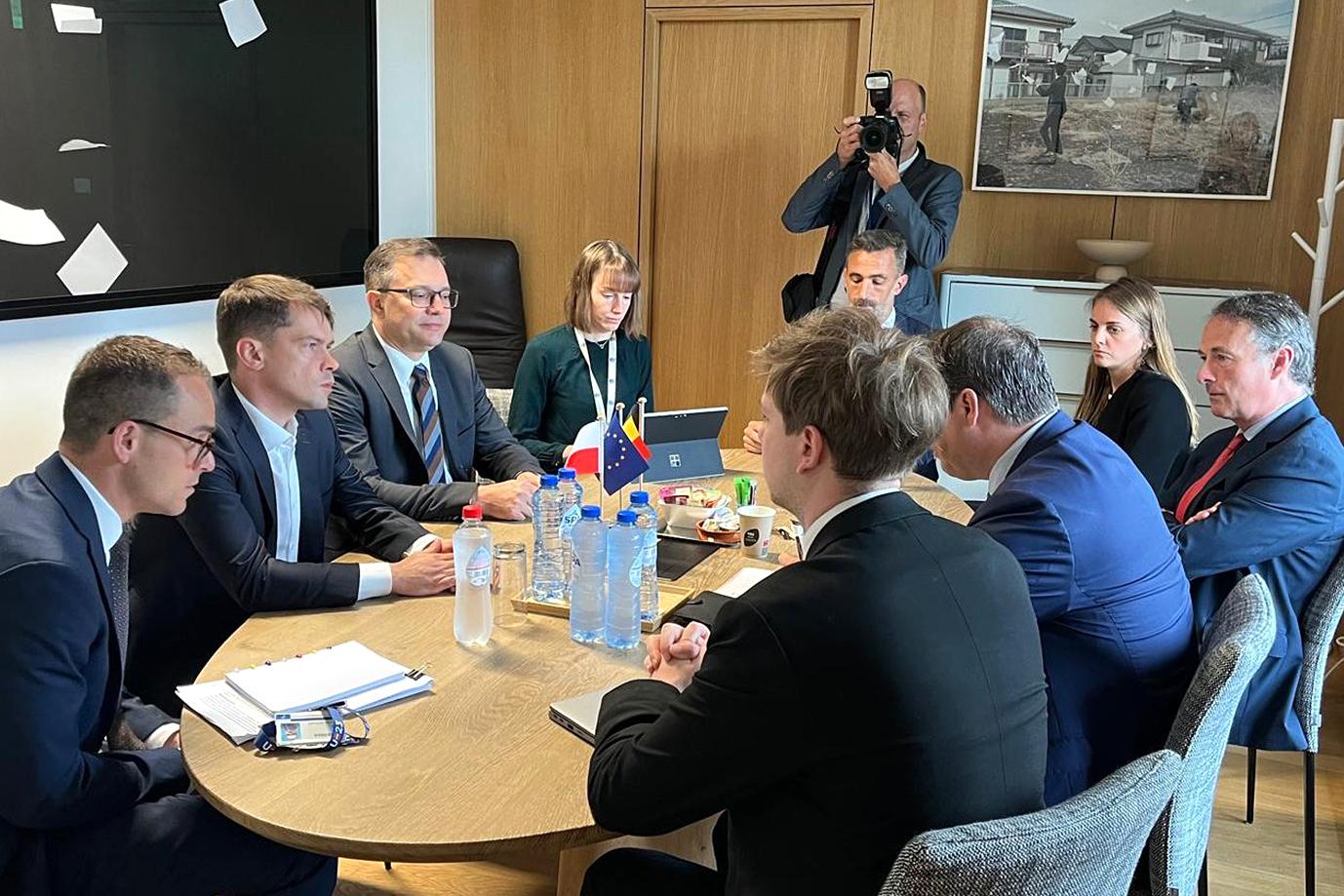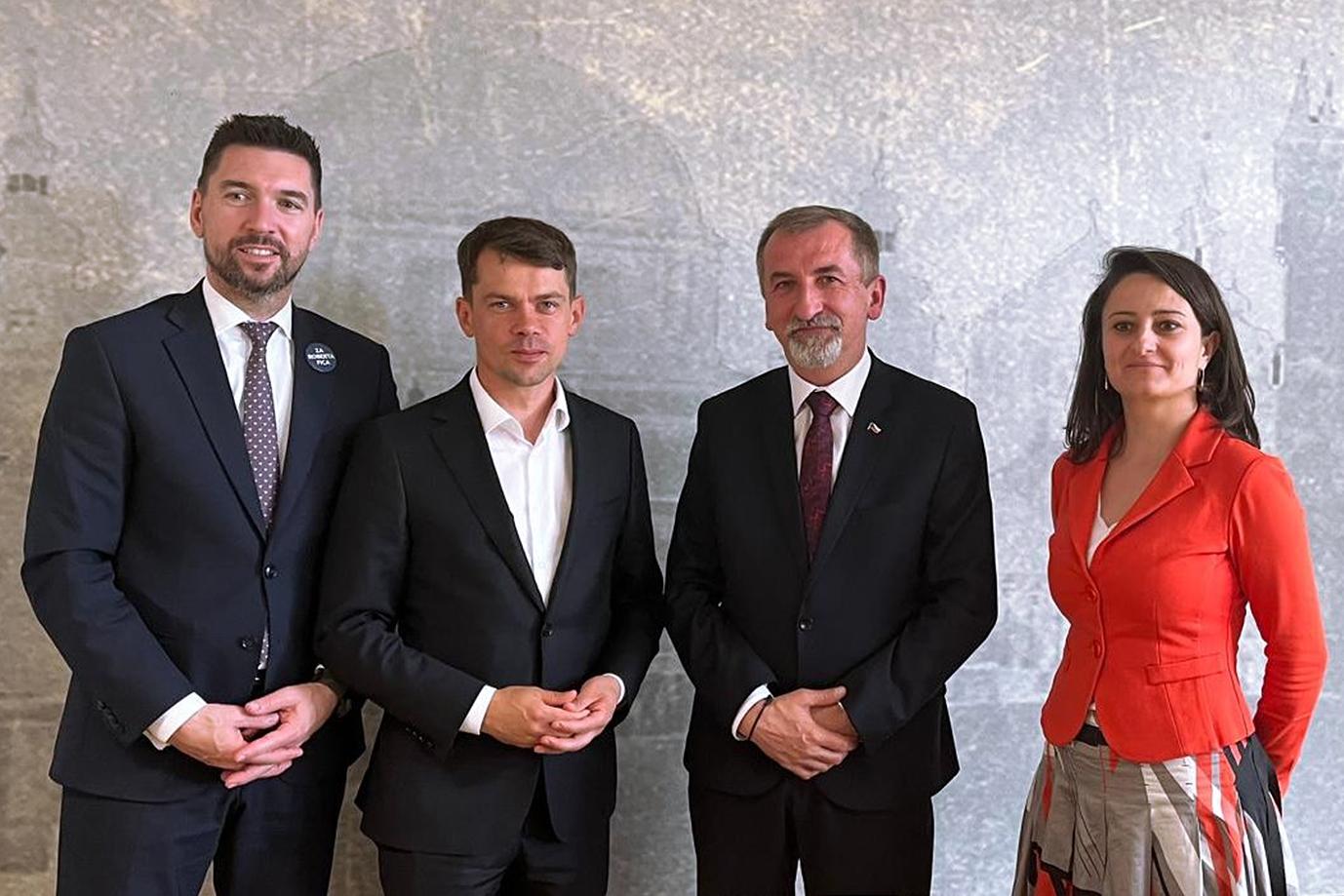Meeting of the AGRIFISH Council in Brussels – talks on the crisis situation in agriculture and in agricultural markets
27.05.2024
On 27 May, the meeting of the EU Agriculture and Fisheries Council (AGRIFISH) was held in Brussels. At the meeting, further measures related to the current crisis situation in agriculture and issues related to the situation in agricultural markets were discussed. Poland submitted for debate a proposal on the difficult situation of fruit producers, in connection with the expected decrease in yields caused by adverse weather conditions. The Polish delegation was chaired by the Secretary of State Michał Kołodziejczak.

Response to the current situation in agriculture
The Ministers held a debate on further measures in relation to the crisis situation in the agricultural sector and discussed the future of crisis management. During the debate, the Austrian delegation presented a note on the challenges posed by large predators for agriculture and rural areas.
Position of Poland
In reference to the demands put forward this February by the Member States and farmers, the Secretary of State Michał Kołodziejczak reiterated the need for the European Commission to take further, necessary measures.
– The experience of the crises in recent years has shown that the current CAP mechanisms are not sufficient. Insufficient are also financial resources in the EU budget – said the Deputy Minister of Agriculture and Rural Development.
Deputy Minister Michał Kołodziejczak stated that it was necessary to take a comprehensive look at crisis management and include all EU policies in the response to emerging crises at such a large scale.
The Secretary of State also added that regulations on the functioning of agricultural markets and crisis management should consider the specific nature of agriculture and production conditions of the Member States.
– The Member States need flexibility in applying appropriate measures in response to crises – stated the Deputy Minister.
The head of the Polish delegation also pointed to the transmission of prices in the food chain. He stressed that in the event of a crisis, the fall in the price paid to the producer did not always have an impact on the market price.
Deputy Minister Michał Kołodziejczak added that the experience of the existing instruments implemented to counteract climate change in agriculture had shown that it was necessary to better adapt the CAP tools to the needs of farmers.
– The costs incurred to reduce climate change must be fairly shared between Member States – said the Secretary of State Michał Kołodziejczak.
The head of the Polish delegation referred to the note of the Austrian delegation on predators and informed that Poland supported EU initiatives aimed at mitigating the protection status of wolves in Europe. He added that also in Poland the growing population of this species was beginning to become a problem.
The situation in agricultural markets
The EU Ministers discussed the situation in agricultural markets, particularly after the Russian invasion of Ukraine.
Position of Poland
Deputy Minister Kołodziejczak presented Poland’s proposal on the difficult situation of fruit producers, in connection with the expected decrease in yields caused by adverse weather conditions.
The Secretary of State informed that the biggest problem were the effects of frost and hail, which had occurred at the end of April.
– Frost damaged, inter alia, crops of apples, plums, cherries, sour cherries, raspberries, strawberries, blueberries, currants and vines. Locally, losses may amount to up to 100% of the expected harvest – said Deputy Minister Kołodziejczak.
The Deputy Minister of Agriculture stressed that the European Commission should take action to mobilise emergency aid for fruit and vine producers who had suffered losses as a result of April frost.
In addition, he informed that in Poland we still observed large disturbances in various markets, including those for sugar, fruit and cereals.
– Prices of cereals are currently at the level of prices from 2020, while prices of rapeseed are below the level of prices from 2021. We are also concerned about the situation in the sugar market – said Deputy Minister Kołodziejczak.
Marking foodstuffs with a country of origin
The German and Austrian delegations presented a note calling upon the new European Commission to quickly submit a legislative proposal on extending mandatory marking of country of origin for foodstuffs all over the EU.
Position of Poland
Deputy Minister Kołodziejczak stressed that the need to mark food groups for which such information is not currently required with information about a country of origin could be assessed in detail only after presenting an impact assessment report by the European Commission.
Dual quality of food products
The Slovak delegation presented a note on the problem of dual quality of food products.
Position of Poland
Secretary of State Michał Kołodziejczak stated that eliminating practices that mislead consumers had to apply to the common market, not individual countries.
– We welcomed the directive introducing the provisions regarding better enforcement and modernisation of EU consumer protection rules – said the Secretary of State Michał Kołodziejczak.
The Deputy Minister also informed that the phenomenon of the so-called dual quality of food – as an illegal and unfair practice in the consumer market – was under constant supervision of inspections in Poland.
– In our country, there were no cases of dual quality in any of the food industries controlled so far – emphasised Deputy Minister Kołodziejczak.
Neonicotinoids for seed treatment
The Romanian delegation presented a note calling for another review of the European Commission’s regulations prohibiting the use of neonicotinoid treatments, due to the unavailability of effective alternative plant protection products.
Position of Poland
Secretary of State Michał Kołodziejczak pointed to the need to change the approach of the European Union to withdrawing or limiting the possibility of using other active substances. He stressed that food security was a priority at that time.
– We are worried by the EC’s announcements of introducing further restrictions on plant protection, including the restriction of the use of the active substance – captan, without which it is very difficult for European fruit growers to conduct production – said the Deputy Minister of the Polish Ministry of Agriculture.
The head of the Polish delegation stated that further reduction on the number of permitted substances would deteriorate the conditions for conducting production by European farmers and reduce their competitiveness in global markets.
Meetings on the sidelines of the Council meeting
On the sidelines of the AGRIFISH Council, the Deputy Minister of Agriculture and Rural Development Michał Kołodziejczak talked with the representatives of the Belgian Presidency about the draft regulation on new genomic techniques. The Deputy Minister sustained Poland’s negative position on that issue but declared readiness to further work on the text.
Secretary of State Michał Kołodziejczak also attended the meeting of the Ministers of Agriculture of the Visegrad Group, whose subject was the draft regulation on deforestation. The participants in the meeting discussed the possible joint approach of GV4 to the application for postponing its implementation.

